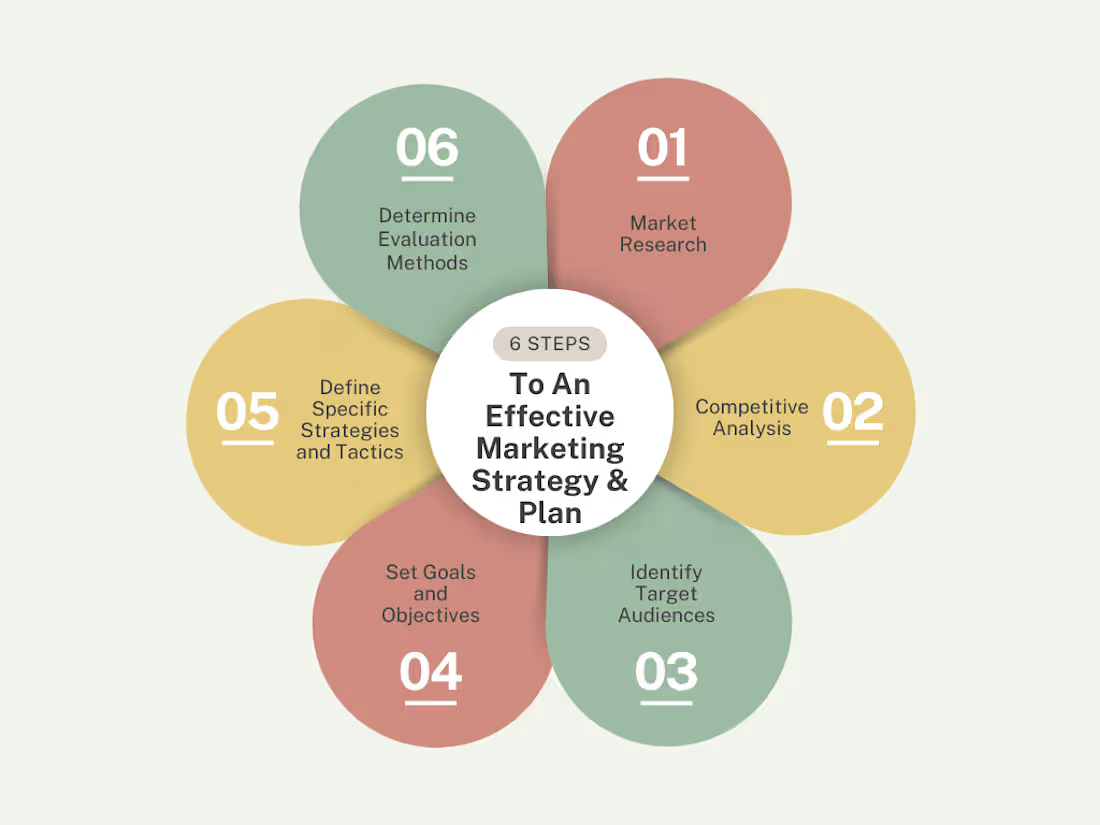
"Marketing Strategy" for your business Peter Davison
I'm bringing my marketing and advertising experience to customize marketing strategies and deliverables that cater specifically to your company and not out the box solutions. What sets me apart is my commitment to creating a personalized approach that can get you started and then grow with your objectives, ensuring effective and measurable results.
FAQs
A marketing strategy is a comprehensive plan that outlines how a business will reach its target audience and achieve its marketing objectives. It includes an analysis of the market, target demographics, positioning, messaging, and the channels through which the marketing will be executed.
A marketing strategy is essential because it provides a roadmap for achieving business goals. It helps align marketing efforts with overall business objectives, ensures effective resource allocation, and allows for the measurement of success through defined KPIs.
To create a marketing strategy, start by conducting market research to understand your audience and competition. Define your goals, identify your target market, develop your messaging, and select the appropriate channels. Finally, establish metrics to measure your success.
Key components of a marketing strategy include market analysis, target audience identification, value proposition, messaging, marketing channels, budget allocation, and performance metrics. Each component plays a crucial role in guiding your marketing efforts.
It’s advisable to review your marketing strategy at least quarterly. This allows you to assess performance, adapt to market changes, and make necessary adjustments to ensure you remain aligned with your business goals and responsive to customer needs.
Contact for pricing
Tags
Canva
ChatGPT
Google Docs
Midjourney
Content Editor
Content Writer
Social Content Designer
Service provided by

Peter Davison Shanghai, China

"Marketing Strategy" for your business Peter Davison
Contact for pricing
Tags
Canva
ChatGPT
Google Docs
Midjourney
Content Editor
Content Writer
Social Content Designer
I'm bringing my marketing and advertising experience to customize marketing strategies and deliverables that cater specifically to your company and not out the box solutions. What sets me apart is my commitment to creating a personalized approach that can get you started and then grow with your objectives, ensuring effective and measurable results.
FAQs
A marketing strategy is a comprehensive plan that outlines how a business will reach its target audience and achieve its marketing objectives. It includes an analysis of the market, target demographics, positioning, messaging, and the channels through which the marketing will be executed.
A marketing strategy is essential because it provides a roadmap for achieving business goals. It helps align marketing efforts with overall business objectives, ensures effective resource allocation, and allows for the measurement of success through defined KPIs.
To create a marketing strategy, start by conducting market research to understand your audience and competition. Define your goals, identify your target market, develop your messaging, and select the appropriate channels. Finally, establish metrics to measure your success.
Key components of a marketing strategy include market analysis, target audience identification, value proposition, messaging, marketing channels, budget allocation, and performance metrics. Each component plays a crucial role in guiding your marketing efforts.
It’s advisable to review your marketing strategy at least quarterly. This allows you to assess performance, adapt to market changes, and make necessary adjustments to ensure you remain aligned with your business goals and responsive to customer needs.
Contact for pricing






